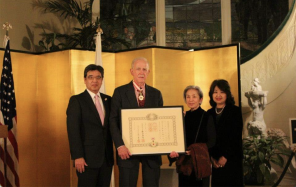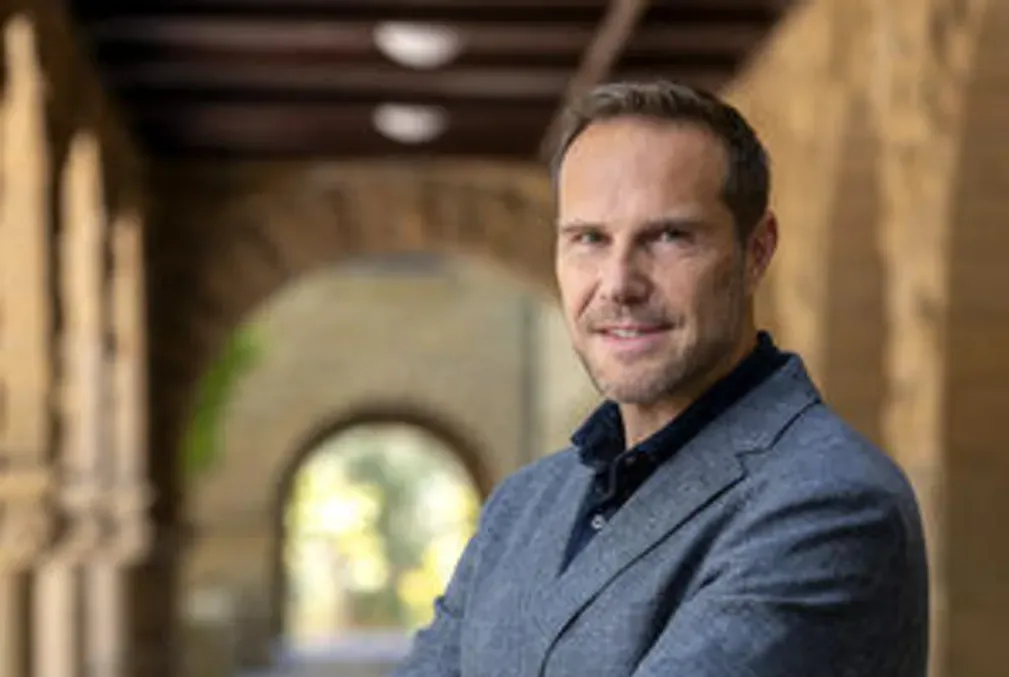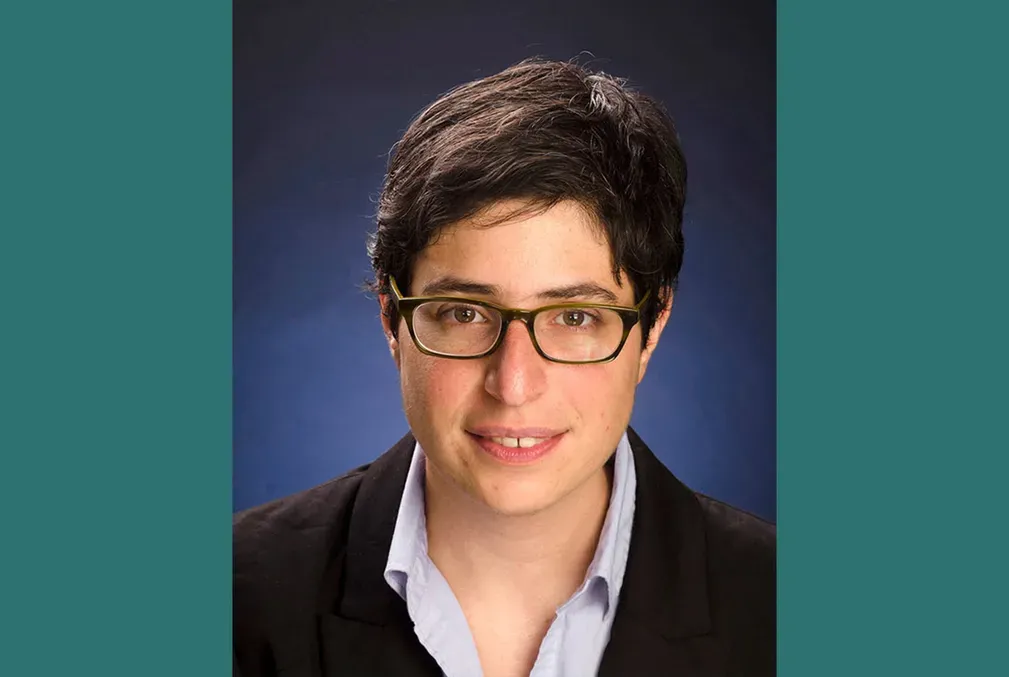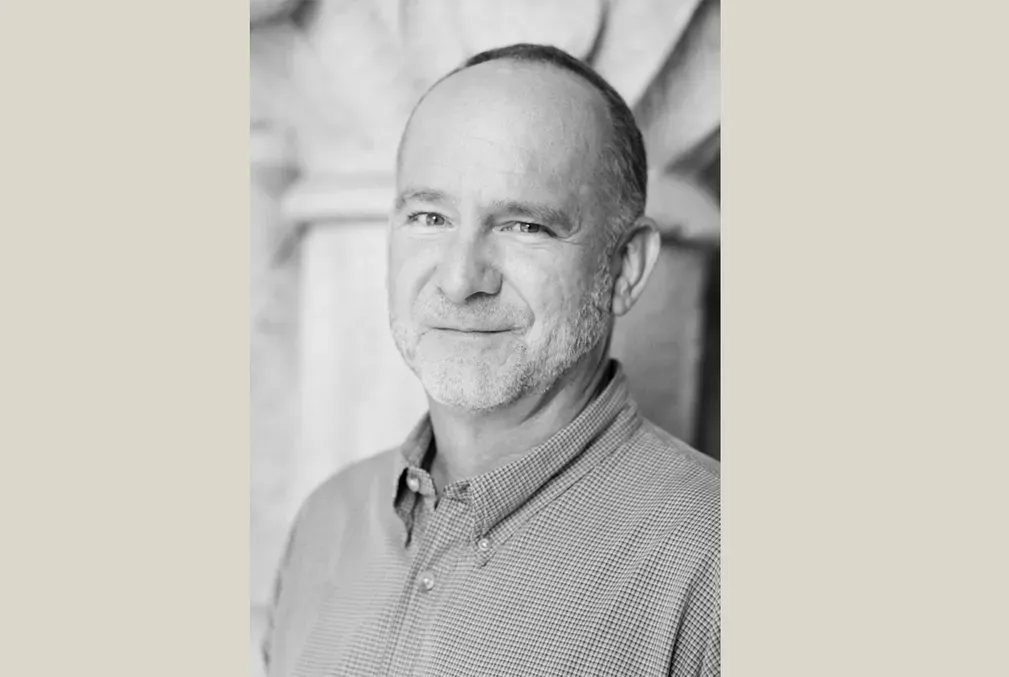Peter Duus, an authority on the modern Japanese nation, dies at 88
Stanford history professor Peter Duus helped found and foster the fields of modern Japanese history and Asian studies through his research and mentorship at Stanford and abroad.
Peter Duus, the William H. Bonsall Professor of History, Emeritus in the School of Humanities and Sciences and a widely published expert on the history of Japan and East Asia, died Nov. 5, 2022. He was 88.
Duus made significant contributions to our understanding of Japanese imperialism and the modern Japanese nation. His research interests focused on Japanese colonialism and imperialism, the development of Tokyo, and modern political cartoons.
The government of Japan awarded him the prestigious Order of the Rising Sun in 2012 for promoting a better understanding of Japan.
“His groundbreaking work put Stanford on the map as an early leader in the history of Japanese imperialism in Korea,” said Kären E. Wigen, the Frances and Charles Field Professor of History at Stanford.
When Duus began teaching at Stanford in 1973, he had already published widely on Japanese history. He served as director for Stanford’s Center for East Asian Studies three times (1977-1981, 1987-1988, and 1995-1997) and was named the William H. Bonsall Professor of History in 1985.
“Peter was an excellent university citizen,” said David M. Kennedy, the Donald J. McLachlan Professor of History, Emeritus. “He was conscientious, droll, seriously scholarly, collegial, focused, supportive, mordant, balanced, and steadfast.”
A mentor to students at Stanford and abroad
Duus actively promoted the study of Japan and East Asia at Stanford and globally through his leadership roles and educational activities. He served as executive director (1974-1989) of the Inter-University Center for Japanese Language Studies, a consortium school Stanford University founded in Japan for American students pursuing Japanese studies. He also helped establish the Kyoto Consortium for Japanese Studies, a study abroad program for U.S. students.
“Teaching is never easy, especially when you teach about unfamiliar cultures,” Duus said in a Stanford News Service interview in July 1979. “You have to put everything you have into it. But if you are really interested in a subject, students will pick up on your enthusiasm.”
Duus’ former students described him as a mentor who opened their minds to the world and boosted their careers, all with a sense of humor.
“As a historian, he was interested in the big questions related to Japan's development—democracy and empire, feudalism and fascism,” said Angus Lockyer, who received his doctorate at Stanford in 2000 and is now a visiting scholar at the Center for Asian Studies at the University of Colorado, Boulder. “He wanted to depict Japan on its own terms but also, quietly, to insist that its experience should change our understanding of the things that make up the modern world.”
Alex Bay, who received his doctorate at Stanford in 2006 and is now an associate professor and chair of Chapman University’s Department of History, recalled: “His sense of humor was legendary. … When he hooded me at graduation, I was finishing up a dissertation on the history of vitamin B1 deficiency disease (beriberi) in modern Japan. I knelt down, Professor Duus placed the hood on my shoulders, I turned around to shake his hand, and he said, ‘Beriberi nice.’"
Lifelong fascination with Japan
Peter Duus was born on Dec. 27, 1933, in Wilmington, Delaware, to Hans Christian and Mary Anita (Pennypacker) Duus. Duus was fascinated with Japan at a young age and became fluent in Japanese. He lived in Japan periodically throughout his life, first as a Japan Foundation Fellow and again as a Fulbright Fellow. Later in life, Duus and his wife bought a flat in Kyoto, where they often spent sabbaticals and lived for several months each year after they retired.
“The transformation of Japan into an economic superpower is one of the most fascinating stories of modern times,” Duus said in the 1979 Stanford News Service interview. “It’s exciting to have seen even part of the process since I first went to Japan in 1961.”
He earned a bachelor of arts in history from Harvard University in 1955. He then served with the U.S. Army from 1955 to 1957. Returning to academia, he earned a master of arts in Far Eastern studies from the University of Michigan in 1959 and a doctorate in history from Harvard University in 1965.
Duus met his future wife, Masayo Umezawa, in Cambridge, Massachusetts, where she was a freelance journalist. Masayo became an award-winning nonfiction writer who wrote primarily in Japanese. Duus helped bring her work to a wider audience by translating a selection of her books into English. He also supported her work by editing one book and adapting another. Duus married Masayo on Nov. 25, 1964, and they had a son, Erik.
Duus taught as an associate professor at Washington University (1964-1966), Harvard University (1966-1970), and Claremont Graduate School (now Claremont Graduate University) (1970-1973) before joining Stanford in 1973 as a professor in the Department of History and senior fellow (by courtesy) at the Hoover Institution.
At The Claremont Colleges, Duus met his longtime friend and colleague John Haeger, who at the time was an assistant professor of Chinese and history and chair of the Department of Chinese Language and Literature at Pomona College (one of five liberal arts colleges in The Claremont Colleges). Haeger helped recruit Duus to teach modern Japanese history at Claremont Graduate School. Haeger joined Duus at Stanford in 1979, serving as assistant director of the Research Libraries Group, which had a host institution agreement with Stanford.
“Peter was ideal,” Haeger said. “Naturally soft-spoken and good-natured, he was able to criticize gently, often without giving offense. He rarely aspired to serve on any committee but would generally accept a committee assignment, after first demurring, if he thought he could do something useful and somehow important.”
Duus served as acting director of Stanford’s Center for Research in International Studies in the ’90s and president of the Association for Asian Studies in 2000-2001. He also served on the boards of the Association for Asian Studies and the Committee for International Exchange of Scholars.
He was a prolific writer, authoring, co-authoring, editing, and translating more than a dozen books and many journal articles. Some of his best-known works are The Abacus and the Sword: The Japanese Penetration of Korea, 1895-1910 (University of California Press, 1998) and the trilogy he co-edited with Ramon H. Myers and Mark R. Peattie, The Japanese Colonial Empire, 1895-1945, The Japanese Informal Empire in China, 1895-1937, and The Japanese Wartime Empire, 1931-1945 (Princeton University Press, 1984, 1989, and 1996, respectively).
Duus retired from Stanford in 2004. Both he and his wife donated documents related to their research to the university.
“Peter was a steady and unflappable force in our department” said Jack Rakove, the Coe Professor of History and American Studies, Emeritus, and professor of political science. “He was a great scholar and very sweet guy. He beat me regularly at squash, which I attribute to his height advantage. He was always a graceful winner.”
“He had the sharpest and sweetest wit,” said Gordon H. Chang, the Olive H. Palmer Professor in the Humanities. “Peter was a great colleague, scholar, teacher, mentor, and friend.”
Duus is survived by his son, Erik; daughter-in-law, Heather Duus; and granddaughters Hana, Aila, Haru, and Petra Duus. Masayo died nearly two weeks after her husband on Nov. 18, 2022. A memorial service at Stanford is tentatively planned for late May.





